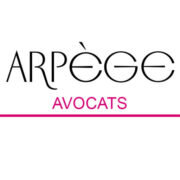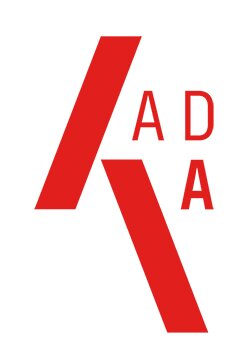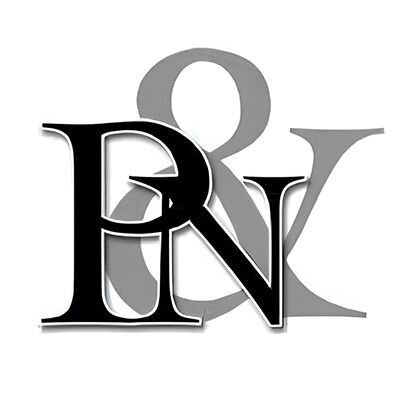Best Brokerage Lawyers in France
Share your needs with us, get contacted by law firms.
Free. Takes 2 min.
Free Guide to Hiring a Real Estate Lawyer
Or refine your search by selecting a city:
List of the best lawyers in France
About Brokerage Law in France
Brokerage in France operates within a well-defined legal framework that regulates the activities of brokers across various sectors, including real estate, finance, and insurance. The main laws governing brokerage activities in France are designed to ensure fair practice, transparency, and consumer protection. Brokers in France are typically required to obtain specific licenses and certifications, demonstrating their compliance with local regulations. The oversight of brokerage activities is conducted by various regulatory bodies, which enforce adherence to legal standards to maintain market integrity.
Why You May Need a Lawyer
There are several scenarios where individuals or businesses may require legal assistance in brokerage activities in France. These include:
- Contract Disputes: Issues arising from brokerage agreements or contracts that may require interpretation or enforcement.
- Regulatory Compliance: Ensuring adherence to regulatory requirements and standards specific to the brokerage industry.
- License Issues: Assisting with obtaining, renewing, or resolving disputes related to brokerage licenses.
- Consumer Complaints: Defense against claims made by clients or customers concerning brokerage services.
- Fraud Allegations: Legal defense in cases involving accusations of misconduct or fraudulent activity.
- Risk Management: Guidance in advertising practices or investment strategies to mitigate potential legal risks.
Local Laws Overview
The key aspects of local laws pertinent to brokerage in France include:
- Licensing Requirements: Brokers must fulfill specific educational and professional criteria to secure necessary licenses.
- Consumer Protection Regulations: Laws designed to protect consumers include clauses about transparency and fairness in transactions.
- Advertising Standards: Strict guidelines regulate how brokers can market their services to prevent misleading or deceptive promotions.
- Data Protection: Compliance with GDPR is essential, ensuring client data is managed according to EU standards.
- Financial Regulations: Specific to financial brokers, these include adherence to financial reporting and capital requirements.
Frequently Asked Questions
What licenses are required for brokerage activities in France?
Brokers need to obtain specific licenses depending on their industry, such as a real estate card for property brokers or registration with the Financial Markets Authority for financial brokers.
How do consumer protection laws affect brokerage?
These laws require brokers to provide clear information and ensure fair dealings to protect clients from misleading practices.
Are there any restrictions on foreign brokers operating in France?
Foreign brokers may need to meet additional compliance requirements and qualifications, ensuring they align with French standards.
What is the consequence of non-compliance with brokerage regulations?
Non-compliance can result in fines, suspension of licenses, or legal actions taken by regulatory authorities.
How are disputes in brokerage typically resolved?
Disputes may be resolved through negotiations, mediation, or legal proceedings, depending on the nature and complexity of the issue.
What role does the Financial Markets Authority play in brokerage?
The AMF oversees financial markets in France, ensuring transparency and regulating brokerage firms to prevent fraud and protect investors.
Is professional liability insurance necessary for brokers?
While not always mandatory, having professional liability insurance is advisable as it can protect against claims of negligence or errors.
What are the penalties for fraudulent activities in brokerage?
Penalties include severe financial fines, imprisonment, and banning from continuing brokerage activities in France.
Can brokers represent both buyer and seller in a transaction?
While possible, it requires full disclosure and consent from both parties to prevent conflicts of interest.
How are brokerage fees regulated?
Fees must be transparent and justified, with regulations ensuring they align with the services provided and are agreed upon in advance.
Additional Resources
Those seeking more information or support in brokerage may consider these resources:
- Autorité des marchés financiers (AMF): Regulatory body overseeing financial markets in France.
- Chambre Nationale des Courtiers d'Assurances: Offers guidelines and support for insurance brokers.
- Institut National de la Consommation: Provides consumer rights information and guidance.
- Professional Brokerage Associations: Offer resources and support specific to various types of brokerage.
Next Steps
If you require legal assistance in brokerage, consider taking these steps:
- Identify the specific area of brokerage law your issue falls under, such as real estate or securities.
- Contact a lawyer who specializes in brokerage and has experience in the relevant legal area.
- Gather all relevant documents and evidence to present to your lawyer for a comprehensive assessment.
- Explore mediation or negotiation as possible alternatives to litigation to resolve disputes.
- Stay informed about changes to relevant laws and regulations to ensure ongoing compliance.
Lawzana helps you find the best lawyers and law firms in France through a curated and pre-screened list of qualified legal professionals. Our platform offers rankings and detailed profiles of attorneys and law firms, allowing you to compare based on practice areas, including Brokerage, experience, and client feedback.
Each profile includes a description of the firm's areas of practice, client reviews, team members and partners, year of establishment, spoken languages, office locations, contact information, social media presence, and any published articles or resources. Most firms on our platform speak English and are experienced in both local and international legal matters.
Get a quote from top-rated law firms in France — quickly, securely, and without unnecessary hassle.
Disclaimer:
The information provided on this page is for general informational purposes only and does not constitute legal advice. While we strive to ensure the accuracy and relevance of the content, legal information may change over time, and interpretations of the law can vary. You should always consult with a qualified legal professional for advice specific to your situation.
We disclaim all liability for actions taken or not taken based on the content of this page. If you believe any information is incorrect or outdated, please contact us, and we will review and update it where appropriate.
Browse brokerage law firms by city in France
Refine your search by selecting a city.

















